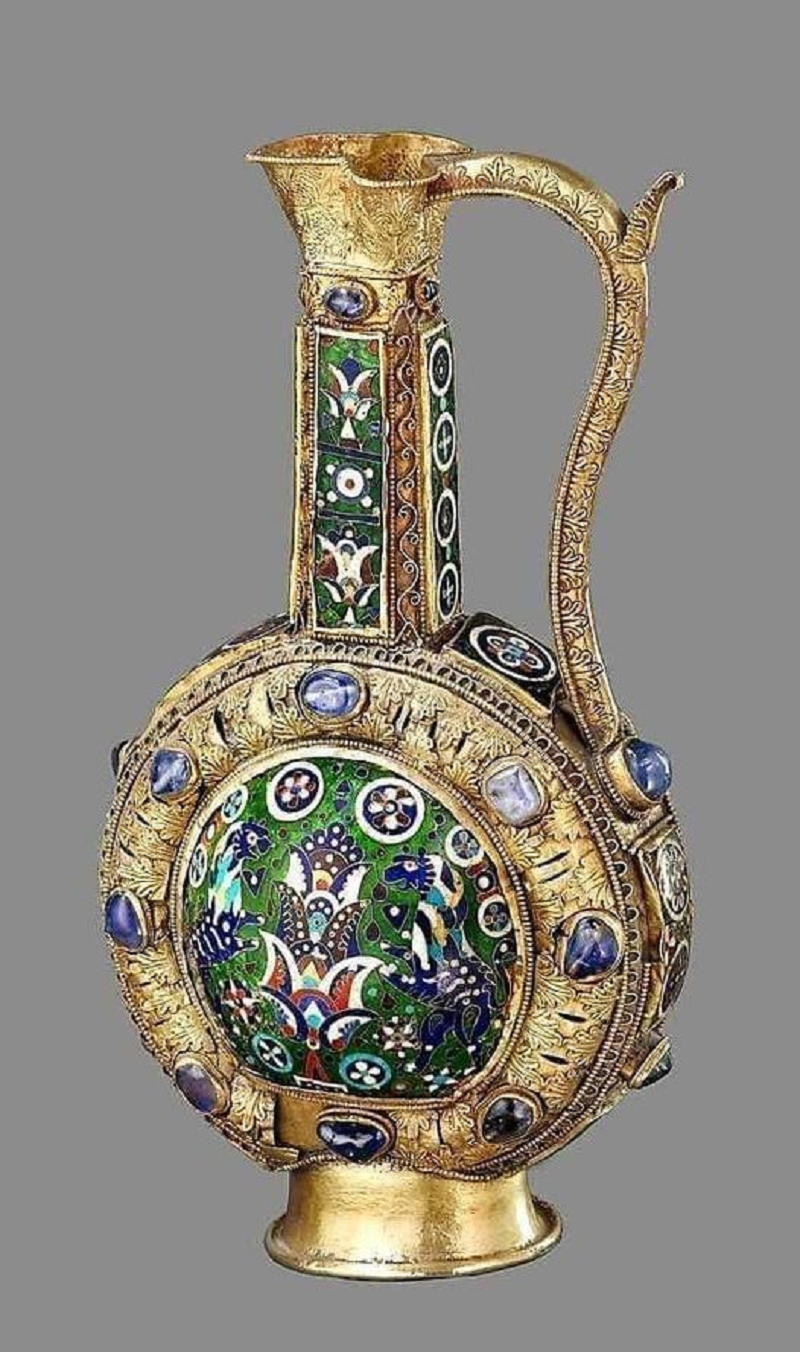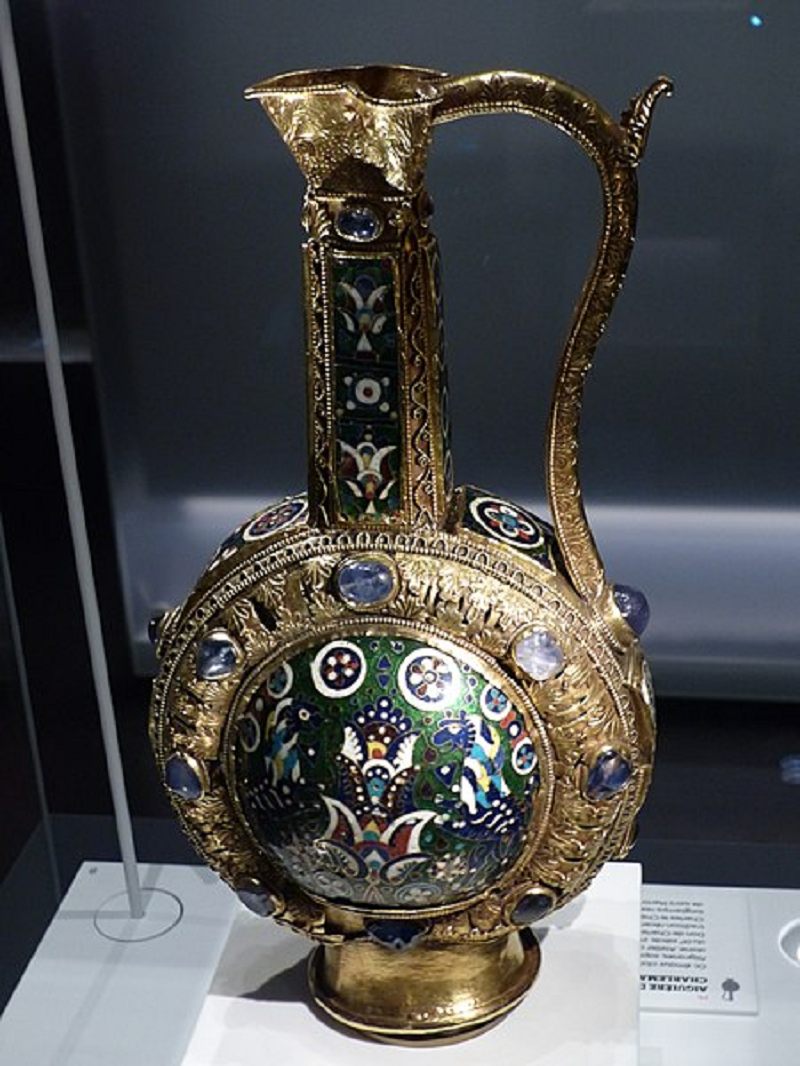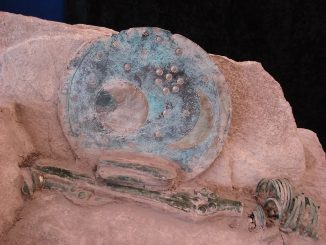In the heart of the Treasury of the Abbey of Saint Maurice, nestled amidst a collection of relics and historical artifacts, lies a piece of history that transcends borders and centuries. This treasure, a Byzantine Cloisonné Enamel Water Jug, carries with it a tale of diplomacy, cultural exchange, and the opulence of medieval rulers. Gifted to Charlemagne by Harun al Rashid, the legendary Abbasid Caliph, this jug serves as a tangible link between the Byzantine Empire and the Islamic world during the early medieval period. As we delve into the intricate details and historical significance of this artifact, we uncover a story that speaks volumes about the interconnectedness of civilizations and the power of diplomatic gestures.

The Byzantine Cloisonné Enamel Technique
To truly appreciate the beauty and craftsmanship of the Byzantine Cloisonné Enamel Water Jug, it’s essential to understand the technique behind its creation. Cloisonné enamel is a decorative method that originated in the Byzantine Empire, characterized by the use of metal wires to create compartments (cloisons) on a metal surface. These compartments are then filled with colored enamel and fired at high temperatures, resulting in a stunning mosaic-like effect. The intricate designs and vibrant colors achieved through this technique made cloisonné enamel highly prized in both Byzantine and Islamic art.

The Gift of Diplomacy
The exchange of diplomatic gifts has long been a tradition among rulers and empires, serving as a means to foster alliances, demonstrate power, and showcase cultural sophistication. The presentation of the Byzantine Cloisonné Enamel Water Jug to Charlemagne by Harun al Rashid is a prime example of this practice. Harun al Rashid, the fifth Abbasid Caliph renowned for his wealth and patronage of the arts, sought to strengthen ties with Charlemagne, the Frankish king and Holy Roman Emperor. By offering such a luxurious and exquisitely crafted artifact, Harun al Rashid not only honored Charlemagne but also demonstrated the cultural richness and artistic prowess of the Islamic world.

The Journey to Saint Maurice
Following its presentation to Charlemagne, the Byzantine Cloisonné Enamel Water Jug embarked on a journey that would eventually lead it to the Treasury of the Abbey of Saint Maurice in Valais, Switzerland. The Abbey, founded in the 6th century, served as a center of religious worship and cultural exchange in the medieval period. Over the centuries, it accumulated a vast collection of treasures, including relics, manuscripts, and artworks, each with its own unique story to tell. The arrival of the Byzantine Cloisonné Enamel Water Jug added another layer of richness to the Abbey’s treasury, solidifying its status as a repository of history and heritage.
Beyond its intrinsic beauty, the Byzantine Cloisonné Enamel Water Jug holds symbolic significance that transcends its material form. As a gift exchanged between two powerful rulers from different civilizations, it serves as a symbol of diplomatic relations and cultural exchange during a tumultuous period in history. The jug’s presence in the Treasury of the Abbey of Saint Maurice not only reflects the Abbey’s role as a custodian of relics but also highlights the enduring legacy of medieval diplomacy and the interconnectedness of diverse cultures.

Conclusion
In the quiet halls of the Treasury of the Abbey of Saint Maurice, the Byzantine Cloisonné Enamel Water Jug stands as a silent witness to the ebb and flow of history. From its origins in the Byzantine Empire to its journey into the hands of Charlemagne and eventually to its resting place in Switzerland, this artifact embodies the spirit of diplomacy, cultural exchange, and artistic craftsmanship. As we marvel at its intricate designs and contemplate its significance, we are reminded of the timeless connections that bind civilizations together and the enduring legacy of those who sought to bridge the divides of their time. Truly, the Byzantine Cloisonné Enamel Water Jug is more than just a relic; it is a testament to the power of human interaction and the richness of our shared heritage.


